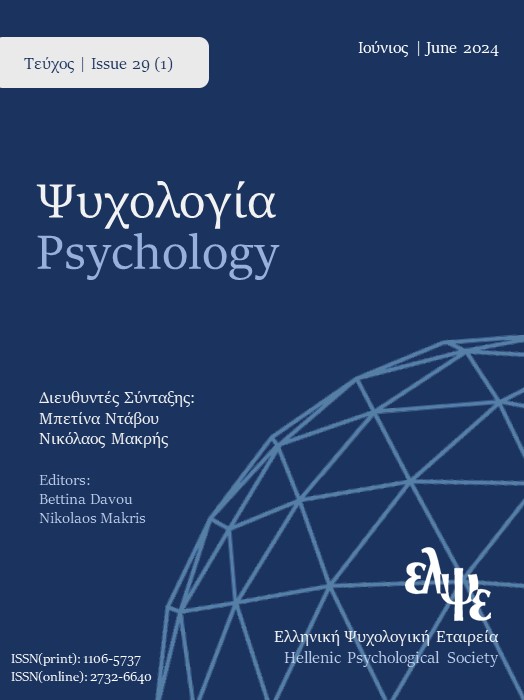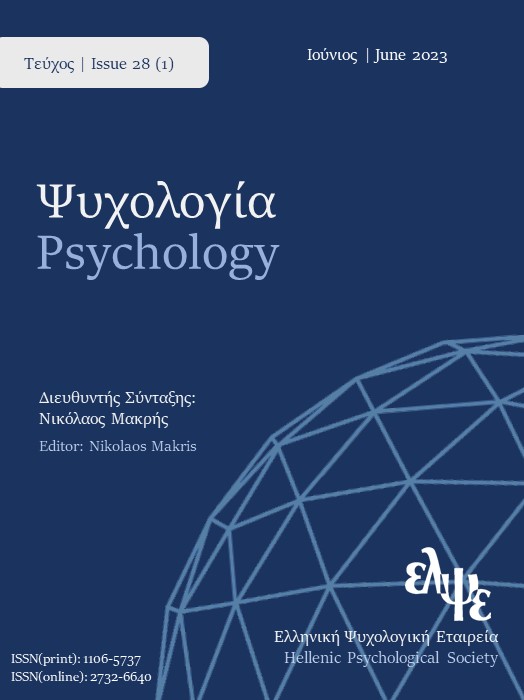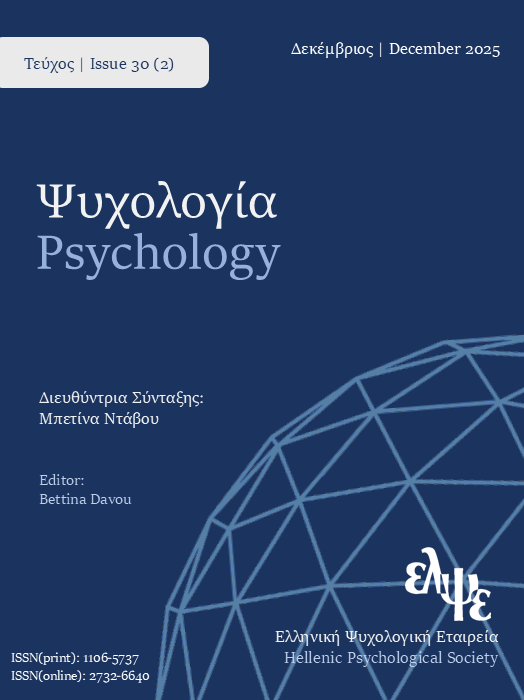Introduction: Political Psychology in an ‘Anti’-politics Era
Abstract
Political psychology constitutes a problem-oriented and interdisciplinary field (Staerkle, 2015). In fact, being born in the decades between the First and Second World Wars, it is intrinsically characterized by the concern to study and cope with social and political crises and their implications (Nesbitt-Larking & Kinnvall, 2012). Its theoretical tools and concepts were developed in order to cast light on phenomena such as mass psychology and collective action, racism, the rise of fascism and authoritarianism. The role of psychology in the study of these phenomena was, as Moscovici (1988) argued, not only necessary but also functional.
Article Details
- How to Cite
-
Figgou, L., & Chryssochoou, X. (2019). Introduction: Political Psychology in an ‘Anti’-politics Era. Psychology: The Journal of the Hellenic Psychological Society, 24(2), 9–14. https://doi.org/10.12681/psy_hps.24914
- Issue
- Vol. 24 No. 2 (2019)
- Section
- SPECIAL SECTION

This work is licensed under a Creative Commons Attribution-ShareAlike 4.0 International License.
The journal PSYCHOLOGY adopts a Platinum open-access policy. Submission, processing or publication costs are waived by the Hellenic Psychological Society. Papers published in the journal PSYCHOLOGY are licensed under a 'Creative Commons Attribution-ShareAlike 4.0 International' licence. The authors reserve the copyright of their work and grant the journal the right of its first publication. Third-party licensees are allowed to use the published paper immediately after publication as they wish, provided they retain the defined by the license copyright formalities, regarding the reference to its author(s) and its initial publication in the journal PSYCHOLOGY. Moreover, any adjusted work should be shared under the same reuse rights, so with the same CC license.






